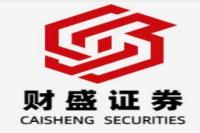Hong Kong's Hang Seng Index Dips: A Look at the Market's Current Landscape
Meta Description: Analyze the latest dip in Hong Kong's Hang Seng Index, exploring potential factors driving the decline and its implications for investors. Discover key insights into the current market landscape, including trends in tech stocks and economic factors influencing global markets.
Introduction:
The world of finance is constantly in flux, a dynamic landscape where every tick of the clock can bring new opportunities and challenges. Today, we're focusing our lens on Hong Kong's Hang Seng Index, which opened with a slight dip on July 30th, raising questions about the broader market sentiment and its potential implications. Analyzing this dip goes beyond simply observing a number, as it offers insights into the forces shaping the global financial landscape. This article delves into the intricacies of the Hong Kong market, exploring the factors driving the Hang Seng's decline and the potential implications for investors.
Understanding the Hang Seng's Dip
The Hang Seng Index, a benchmark for Hong Kong's stock market, serves as a barometer of the region's economic health. A dip in this index, while seemingly minor, can reflect a multitude of factors, from global economic trends to investor sentiment and even geopolitical events. Let's dive deeper into what could be behind the Hang Seng's recent decline:
1. Global Economic Uncertainty:
The world is grappling with a complex tapestry of challenges, from rising inflation and supply chain disruptions to the ongoing war in Ukraine. These global headwinds can cast a shadow on investor confidence, leading to a pullback in stock markets across the globe, including Hong Kong.
2. Tech Sector Volatility:
The technology sector has been a major driver of global stock market performance in recent years, but it's also known for its volatility. The Hang Seng Tech Index, a sub-index tracking the performance of leading tech companies in Hong Kong, has been particularly susceptible to fluctuations. Factors like increased regulation, competition, and changing consumer preferences can all contribute to the tech sector's volatility, impacting the Hang Seng Index.
3. Monetary Policy Tightening:
Central banks around the world are raising interest rates to combat inflation, a move that can impact stock valuations. As interest rates rise, the cost of borrowing increases, potentially dampening economic growth and leading to a reassessment of investment strategies. This could explain the Hang Seng's recent dip as investors adjust their portfolios in response to the new monetary landscape.
4. Geopolitical Tensions:
Geopolitical tensions, particularly in the Asia-Pacific region, can also influence investor sentiment. The ongoing trade war between the United States and China, territorial disputes in the South China Sea, and the evolving relationship between Hong Kong and mainland China all contribute to a complex and volatile geopolitical environment.
Understanding the Current Market Landscape
The Hang Seng's recent dip highlights the importance of understanding the broader market landscape. Here's a closer look at key factors shaping the investing environment:
1. Interest Rates and Inflation:
Interest rates and inflation are inextricably linked. As central banks raise interest rates to curb inflation, the cost of borrowing increases for businesses and consumers alike. This can slow economic growth, potentially leading to a decline in corporate earnings and stock valuations.
2. Economic Growth:
Global economic growth prospects are also a major consideration for investors. The International Monetary Fund (IMF) has revised its global growth forecast downward in recent months, citing the war in Ukraine and ongoing supply chain disruptions as key factors.
3. Corporate Earnings:
Corporate earnings are a key driver of stock market performance. Investors closely watch earnings reports to gauge the health of companies and the overall economy. Any signs of weakness in corporate earnings can lead to a decline in stock prices.
4. Investor Sentiment:
Investor sentiment, or the overall mood of investors, can significantly impact market movements. Fear, uncertainty, and a lack of confidence can lead to a sell-off, while optimism and confidence can fuel a rally.
5. Technological Advancements:
Technological advancements continue to reshape industries and drive economic growth. Investors are seeking opportunities in sectors like artificial intelligence, cloud computing, and electric vehicles. These sectors are expected to play a major role in the future of the global economy.
Navigating the Volatility
The Hang Seng's recent dip serves as a reminder that investing in the stock market is inherently risky. Volatility is a natural part of the market, and it's essential for investors to understand the factors driving these fluctuations. Here are some key considerations for navigating the market's volatility:
-
Diversify your portfolio: Don't put all your eggs in one basket. Diversify your investments across different asset classes, sectors, and geographic regions to mitigate risk.
-
Invest for the long term: Don't get caught up in short-term market fluctuations. Focus on your long-term financial goals and stay invested even when the market is volatile.
-
Do your research: Before investing in any stock or asset class, conduct thorough research and understand the risks involved.
-
Seek professional advice: If you're unsure about how to invest, consult with a qualified financial advisor.
The Future of the Hang Seng
Predicting the future of the Hang Seng Index is a complex task. Multiple factors will influence its performance in the coming months and years. Here are some key considerations:
-
Economic growth in China: China's economic performance is closely linked to the Hang Seng Index. As the world's second-largest economy, any slowdown in China's growth could have a significant impact on Hong Kong's stock market.
-
Global trade tensions: The ongoing trade war between the United States and China and other geopolitical tensions could continue to weigh on the Hang Seng's performance.
-
Interest rate policies: Monetary policy tightening by central banks could slow global economic growth, potentially impacting the Hang Seng Index.
-
Technological innovation: The technology sector is expected to continue to drive growth in the Hong Kong market.
Conclusion:
The Hang Seng's recent dip serves as a stark reminder of the inherent volatility of the stock market. Understanding the factors driving the market's movements is crucial for making informed investment decisions. Whether you're a seasoned investor or just starting your investment journey, keeping a close eye on global economic trends, interest rates, corporate earnings, and investor sentiment is essential for navigating the market's fluctuations.
FAQs:
Q: What is the Hang Seng Index?
A: The Hang Seng Index is a market capitalization-weighted stock market index that tracks the performance of the largest listed companies on the Hong Kong Stock Exchange. It serves as a benchmark for Hong Kong's stock market and is a key indicator of the region's economic health.
Q: What are the main factors driving the Hang Seng's recent dip?
A: The Hang Seng's recent dip is likely due to a combination of factors, including global economic uncertainty, volatility in the technology sector, monetary policy tightening, and geopolitical tensions.
Q: How does the global economic climate influence the Hang Seng Index?
A: The global economic climate plays a significant role in influencing the Hang Seng Index. Factors like global growth, inflation, and interest rates can all impact investor sentiment and stock market performance.
Q: What are the implications of the Hang Seng's dip for investors?
A: The Hang Seng's dip serves as a reminder of the inherent volatility of the stock market. Investors should be aware of the risks involved and have a long-term investment strategy in place.
Q: What should investors do in response to the Hang Seng's recent dip?
A: Investors should remain calm and avoid panic selling. It's important to have a well-diversified portfolio, invest for the long term, and seek professional advice if needed.
Q: What is the outlook for the Hang Seng Index in the future?
A: The outlook for the Hang Seng Index in the future is uncertain. Multiple factors will influence its performance. However, the long-term prospects for the Hong Kong stock market remain positive, driven by the region's economic growth and technological innovation.



